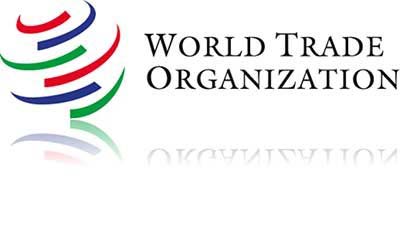Ahmedabad
(Head Office)Address : 506, 3rd EYE THREE (III), Opp. Induben Khakhrawala, Girish Cold Drink Cross Road, CG Road, Navrangpura, Ahmedabad, 380009.
Mobile : 8469231587 / 9586028957
Telephone : 079-40098991
E-mail: dics.upsc@gmail.com

Reforms in WTO
News: The recently concluded meeting of the G20 working group on trade and investment focused on the important issue of WTO reform.
Why was WTO started? What are the modern day concerns?
• The world around 50 years ago valued economic interdependence with the belief that such interdependence would deter security confrontation. The WTO, created in that era, was aimed at legalising and policing economic interdependence.
• However, today’s world is dominated by geoeconomic considerations and heightened securitisation of international economic relations.
Which challenges faced by WTO require reforms?
• The rise of unilateralism in international economic relations, particularly by developed countries like the US
• Economic policies such as industrial subsidies and local content requirements that violate WTO rules
• Weakening of trade multilateralism in favor of external plurilateral alignments, and neglect and disregard for WTO laws and rules by certain countries.
• The presence of special and differential treatment (SDT) principles in WTO agreements. SDT provisions give special rights to developing countries and obligate developed countries to treat the former more favourably. However, only 21% of the SDT provisions in various WTO agreements oblige developed countries to actually provide differential treatment to developing countries. Therefore, SDT provisions
need to be given more teeth and any effort to weaken this treaty-embedded right in the name of WTO reform should be opposed.
• To reinvigorate the WTO, reform needs to cover all three pillars.
• Of particular note is the need for a permanent solution to the crisis of the WTO’s Appellate Body and dispute settlement system.
What is the WTO’s appellate body?
• The WTO Appellate Body is a standing body of seven members that hears appeals from reports issued by panels in disputes brought by WTO members.
• The members are appointed by the DSB for four-year terms and have expertise in law, international trade and the covered agreements.
• The Appellate Body can uphold, modify or reverse the legal findings and conclusions of a panel, and its reports are adopted by the DSB unless all members decide not to do so.
• However, the body remains paralysed since 2019 which is part of the US’s overall game plan to dilute the policing part of the WTO to pursue trade unilateralism without many checks. The remaining G20 countries need to either persuade the US or resurrect the appellate body without the US.
Way Forward
• Trade multilateralism might be out of fashion, but remains of vital salience for countries like India. Therefore, under its Presidency of the G20, India should work with others to drive the WTO reforms agenda aimed at making trade multilateralism inclusive.

Address : 506, 3rd EYE THREE (III), Opp. Induben Khakhrawala, Girish Cold Drink Cross Road, CG Road, Navrangpura, Ahmedabad, 380009.
Mobile : 8469231587 / 9586028957
Telephone : 079-40098991
E-mail: dics.upsc@gmail.com
Address: A-306, The Landmark, Urjanagar-1, Opp. Spicy Street, Kudasan – Por Road, Kudasan, Gandhinagar – 382421
Mobile : 9723832444 / 9723932444
E-mail: dics.gnagar@gmail.com
Address: 2nd Floor, 9 Shivali Society, L&T Circle, opp. Ratri Bazar, Karelibaugh, Vadodara, 390018
Mobile : 9725692037 / 9725692054
E-mail: dics.vadodara@gmail.com
Address: 403, Raj Victoria, Opp. Pal Walkway, Near Galaxy Circle, Pal, Surat-394510
Mobile : 8401031583 / 8401031587
E-mail: dics.surat@gmail.com
Address: 303,305 K 158 Complex Above Magson, Sindhubhavan Road Ahmedabad-380059
Mobile : 9974751177 / 8469231587
E-mail: dicssbr@gmail.com
Address: 57/17, 2nd Floor, Old Rajinder Nagar Market, Bada Bazaar Marg, Delhi-60
Mobile : 9104830862 / 9104830865
E-mail: dics.newdelhi@gmail.com